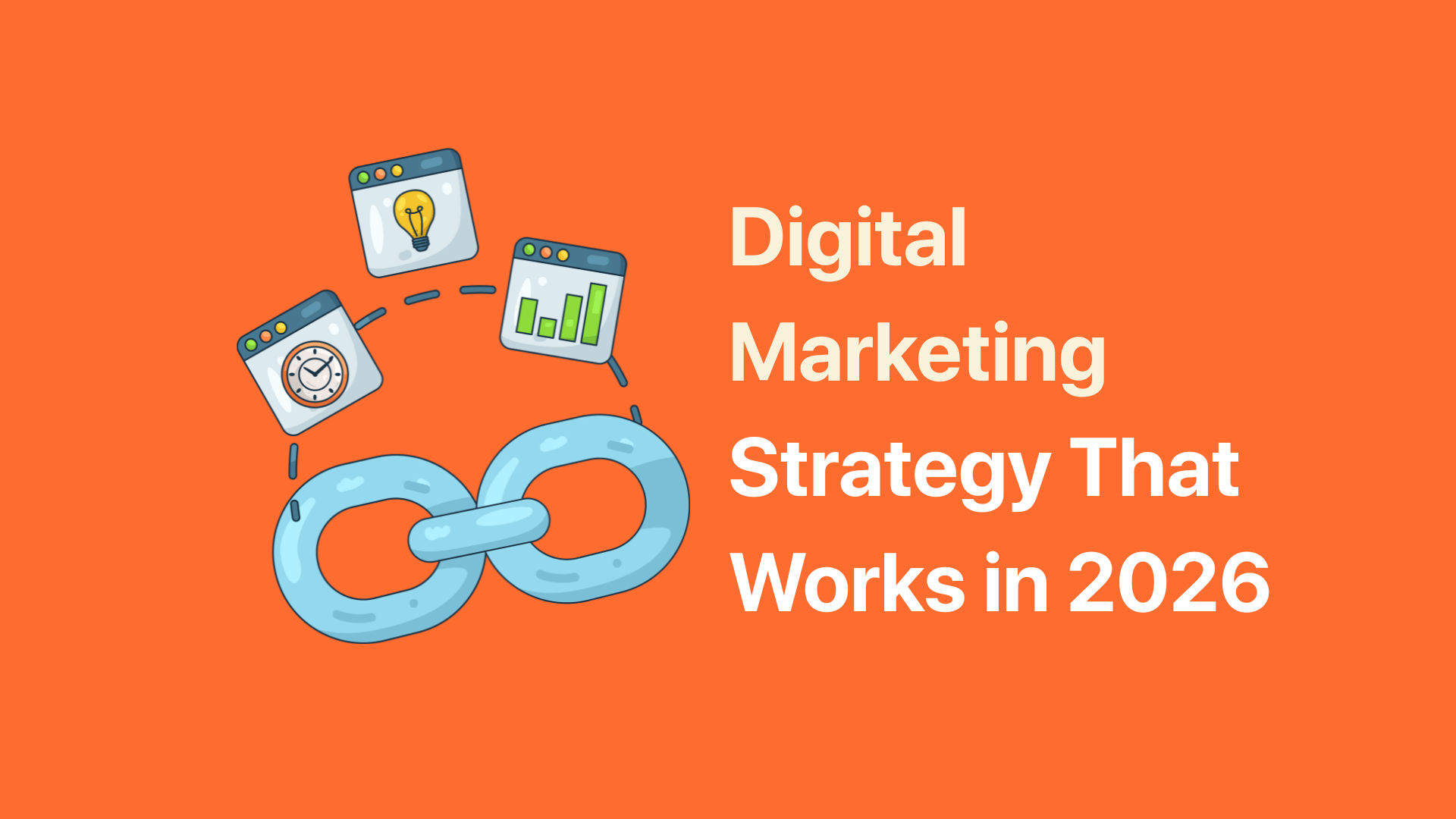How to Turn Your Passion into a Profitable Online Business
Building a successful online business needs time and constant dedication. A business nuance and tangible profits come after significant toil. So, if your only drive here is money, it’s easy to lose patience when the growth is slow.
But the journey will be rewarding if you start your online business in a field you are passionate about. So, in this article, we share 9 ways to turn your passion into a profitable online business.
9 Steps to Turn Your Passion into a Profitable Online Business
Here is how you build an online business you are passionate about:
1. Discover Your Passion
Before developing a business idea, define what you are passionate about. Reflect on your interests and assess your skills in each. Ask yourself:
a. What do you enjoy doing?
b. What matters most to you?
c. Which field do you know the best?
d. Do you have the right skills in that field to turn it into a business?
Based on these answers, list your potential niches. Explore different industries to check where your passions are most aligned. Check Google Trends to see what’s popular in the spaces you are passionate about to gather some viable business ideas.
Your business must stand out from the competition to thrive online. Examine the market gap and evaluate demand before settling on a business idea. Assess the market trends in your shortlisted niches to balance passion and profit. Engaging bespoke software developers can give you a technological edge, ensuring your online presence matches the uniqueness of your offerings.
2. Validate Your Business Idea
Now that you have a business idea, you can wholeheartedly invest in and validate its market potential. With market validation, you can:
a. Identify your target customer segments.
b. Predict whether your online business can make consistent profits and grow.
c. Understand your market positioning.
d. Get investment and funding easily.
e. Design products and services that target specific pain points.
Estimate your niche’s market size and the share you can capture. This way, you can check your chosen venture’s feasibility and create an effective business strategy.
Collect and analyze first-party and third-party customer data to identify your target audience. Analyze their needs, understand where your competitors are lacking, and measure your capability to fulfill those demands. Run competitor analysis to gain insight into the competitor’s USPs.
Neal Taparia, from Hearts. Land suggests researching competitors to validate your business. “Look at who is successful in your space and how many employees they have. That will give you a sense of what success can look like. We started building card games because we saw successful gaming businesses with similar games and an opportunity to add multiplayer and tournaments.
3. Develop a Solid Business Plan
An online business involves multiple stages and technicalities, from getting the licenses and permissions necessary to building a business model. Not having an effective strategy can lead to haphazard efforts and poor decision-making. Engaging with a reputable business consultancy can provide invaluable guidance, ensuring that your online venture is backed by sound advice and expertise.
That’s why a well-crafted business plan is essential, as it lays down a clear roadmap to your venture’s success and acts as a step-by-step guide on how to structure, run, and scale your business.
You can articulate sustainable and realistic goals by outlining all the elements of your online business. It keeps your objectives aligned with your values, clarifies short and long-term goals, and drives accurate financial projections. Creating a no-code MVP can be a great way to quickly test your business idea and gather valuable feedback before investing in complex development.
A solid business plan pitches your passion as a profitable venture. It shows your investors the ROI and makes them confident to work with you. For agencies looking to stand out, expert pitch preparation for agencies can make all the difference in securing investor trust and enthusiasm.
Remember, your business plan is not supposed to have all the answers. However, if you strategize properly and prepare all the necessary product management documents, it drives informed decision-making, efficient progress tracking, and the overall growth of your online business, especially in the realm of desktop-as-a-service. In addition, integrating robust financial management solutions into your business plan can streamline operations, optimize resource allocation, and bolster financial transparency, enhancing the overall viability and sustainability of your online venture.
4. Monetization Strategies
Although passion is a great motivation behind a business’s success, the primary goal is to make money. You need a clear framework that decides prices, details incomes, and settles revenue sources.
So, ideate a sustainable monetization strategy early on to keep your efforts on the right track. Here are some ways to get started:
A. Identify your target audience
Once you conduct thorough market research and know your ideal audience and their needs, it becomes easier to gauge how much they will pay for your products or services. Plus, you can do a competitor analysis to set competitive prices.
B. Diversify your revenue streams
To avoid stagnation or unforeseeable issues, explore multiple avenues to generate revenue. Try creating digital products and selling them on platforms like Gumroad, starting subscription models, or expanding your services.
C. Seek partnerships and collaborations
Strategies like joint ventures, affiliate marketing, or cross-promoting are splendid choices for gaining more visibility and increasing your revenue potential.
You can focus on setting up up upselling and cross-selling strategies via discounts or seasonal promotions. For educational platforms, collaborating with an online GCSE maths tutor can provide added value and attract a broader audience interested in improving mathematical skills.
D. Opt for dropshipping for your product business
Dropshipping presents a low-risk approach to selling products to your customer base once you have identified your target audience, test the market by choosing a dropshipping model instead of stocking bulk products. It is a great low-cost model to validate your business.
For a better chance at succeeding, choose the right vendors and dropshipping platform to control costs if you have a product-based business.
5. Build a Strong Online Presence
A powerful online presence establishes your credibility and builds trust. It also acts as a platform to showcase your expertise and promote your offerings, such as your WordPress website development services. Cultivating a brand that adds value to your audience should be a no-brainer.
Here are the top ways to build a robust online presence:
1. A professional website: A well-designed and user-friendly website that reflects your brand and its values should be one of the earlier steps of starting your business. If you're using platforms like WooCommerce, engaging with professional WooCommerce development services can ensure a seamless setup. You should also create a blog for your website, where you can share your expert advice and establish trust and authenticity while offering value to your visitors. Also, remember to optimize it for search engines to increase your organic visibility.
2. Get on social media: While you don’t have to join all platforms, be active on the ones where your audience hangs. For example, have a B2B company? Get LinkedIn. Ensure you leverage the platform's features and engage with other accounts. Similarly, if your business specializes in selling interior decor, platforms like Instagram and Pinterest are ideal due to their visual nature.
3. Share valuable content: Creating high-quality content makes it easier to position yourself as a leader in the niche. So, regularly create social media posts, informative blogs, online flyers, short videos, or infographics to establish authority and stay at the top of your audience’s minds.
Regardless of the medium, use tools to increase engagement and redirect traffic to other active channels. Embedding feedback forms like NPS surveys to get a pulse of your audience’s opinions. Add contact forms to build an email list and send personalized offers.
4. Cultivate positive reviews and testimonials: Encourage your satisfied customers to leave reviews and provide testimonials about their experience with your products or services. Positive reviews not only enhance your online reputation but also serve as social proof, showcasing the trustworthiness and quality of your offerings to potential customers. Consistently monitoring and improving your online reviews can help you build a strong online presence by boosting credibility and attracting new customers. For example, if you're an online education provider, positive school reviews can not only enhance your online reputation but also serve as social proof, showcasing the trustworthiness and quality of your educational products or services to potential customers in the target sector.
5. Collaborate with influencers: Collaborating with influencers can significantly amplify your online business's reach and credibility. Utilize an influencer search tool to find suitable partners who align with your niche. Influencers hold sway over their followers' purchasing decisions, making them powerful allies for promoting your products or services. Through sponsored content or brand partnerships, influencer collaborations can provide valuable exposure and foster trust with potential customers. Integrating influencer marketing into your strategy can yield significant returns for your passion-driven online business. For those seeking effective online earning tips, leveraging influencer marketing is a key strategy to increase visibility and sales. Integrating influencer marketing into your strategy can yield significant returns for your passion-driven online business.
6. Boost Your Rankings: Launch a comprehensive link-building strategy to grow traffic and improve your site's rankings on search engines. One way to do this is through link exchanges with other websites, or you can purchase high-quality backlinks using platforms like app.seobuilding.link. Building a strong backlink profile will increase your site's authority, driving more organic traffic and improving your online visibility.
6. Use Lead Generation Strategies
Generating leads should be a continuous process to build a profitable online business. Effective lead-generation strategies help you attract and nurture potential customers into paying clients.
Use these strategies to generate more leads:
a.Provide valuable content. Also, create gated content to collect contact details.
b.Optimize your landing pages and place CTAs strategically.
c.Offer opt-in incentives or freebies to build an email list and nurture them with regular campaigns.
d.Run social media campaigns to redirect traffic to purchase pages and other online accounts, focusing on maximizing social media engagement.
e.Collaborate with thought leaders and influencers who have significant pull in your niche. These expert endorsements act as social proof and help you reach more people.
f.Host webinars, AMAs, and other live events to show your niche expertise and engage with your target audience. Create registration forms to collect attendee information for future campaigns. Ensure you verify leads to avoid duplicates. Maximize engagement with professionally designed event invitation templates for seamless webinars and AMAs.
7. Maximize Lead Conversion and Sales
After you try the above strategies for generating leads, your next focus should be to convert them and increase your sales. For this, you must try different lead nurturing strategies, A/B test targeted email marketing campaigns, SMS Marketing and optimize your sales funnel so fewer leads drop off.
Simplify the steps to reduce friction for each stage of the sales funnel. For example, ensure your sign-up page requires three or lesser boxes to be filled. Additionally, ensure your website copy is persuasive and clearly states your value proposition.
To further help your leads through the digital marketing funnel, create engaging funnel-appropriate content.
To effectively track the progress of leads through the sales funnel, we recommend using a dedicated software solution, such as a Customer Relationship Management (CRM). With a sales CRM, organizations can organize lead information, track interactions, and monitor the status of each lead at every stage of the sales journey.
Source: Reallygoodemails.com
For example, you can run a bottom-of-the-funnel (BoFu) email campaign for time-bound sales you are running with coupons and discount codes.
8. Refine and Scale Your Online Business
Once your business gets traction, refine your existing strategies to suit your stage. You can do it by refocusing your marketing efforts to target channels that generate more interest and bring a higher return on investment. You can also streamline your operations and introduce automation for higher work efficiency. Also, continually improve customer support to identify and fix weaker areas, for example, install a live chat option through software such as Crisp (which integrates with the popular ecommerce platform WooCommerce) to increase the efficiency and effectiveness of your customer service.
Explore newer opportunities by tapping into new markets. Repeat the earlier steps to ascertain your success. You must also continuously adapt to market trends and changes to stay relevant and grow. Also, remember to innovate to keep up with evolving customer preferences.
Finally, build strategic partnerships to benefit from the collaboration mutually to expand your audience and increase your ecommerce sales. Also if you are new in the industry then secure your business with an IAM Resilience Platform that gives you backups and flexible recovery options.
9. Track Performance and Analytics
Tapping into storytelling and the emotional aspect of selling is crucial, but you also need to quantify it with hard data. So, define and monitor key metrics, such as conversion rates, website traffic, or customer retention, to check your growth. Focus on tracking metrics that directly impact your bottom line.
Schedule regular reviews of your analytics data to identify trends, patterns, and areas of improvement. Look for opportunities to optimize your marketing strategies, website design, and user experience based on data-driven insights, you can also consider MDM benefits to mitigate the risks associated with data breaches.
Then, use the data gathered to make informed decisions. Adjust your strategies, campaigns, or targeting based on the performance data to drive better results.
Conclusion
Turning your passion into a profitable online business requires a combination of strategic actions and an influential online presence.
By building a solid foundation, implementing effective monetization strategies, generating and nurturing leads, optimizing sales funnels, and leveraging data-driven insights, you can pave the way for success.
Consistency and adaptability are key to staying relevant and meeting changing customer demands. So, stay focused but don’t be afraid to pivot to meet market and consumer needs.
You should also create a blog for your website, where you can share your expert advice and establish trust and authenticity while offering value to your visitors.








